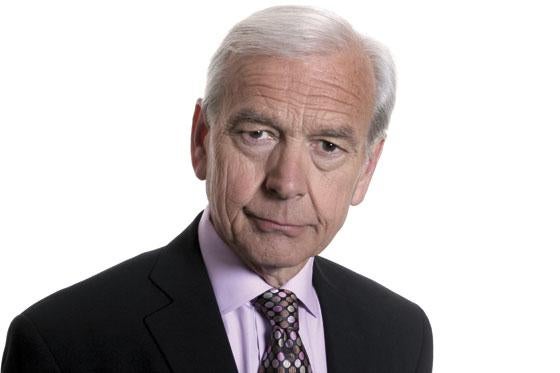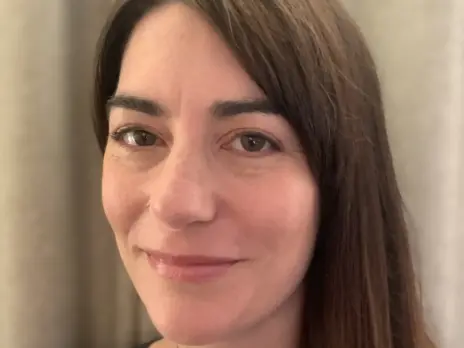
Jeremy Vine is the highest paid BBC journalist, followed by Radio 4 Today presenter John Humphrys, according to figures revealed today by the corporation.
The figures for stars paid more than £150,000 from the licence fee have been released following government pressure.
BBC News anchor Fiona Bruce is the highest paid woman journalist.
Salaries are shown in bands of £50,000.
Radio 2 presenter Vine earns between £700,000 and £749,999.
BBC News at Ten presenter Edwards is paid between £550,000 and £599,999.
BBC Radio 4 Today presenter Humphrys (pictured) is in the pay band £600,000 to £649,999.
Andrew Marr, who presents his own political talk programme on BBC One, is paid between £400,000 to £449,999.
BBC Northern Ireland presenter Stephen Nolan receives a salary of between £400,000 and £449,999 a year.
Radio Five Live’s Nicky Campbell is paid between £400,000 to £449,999.
TV newsreader, and presenter of the Antiques Roadshow, Bruce earns between £350,000 and £399,999.
Radio 4 PM presenter Eddie Mair is paid between £300,000 and £349,999.
Newsnight and Dragons’ Den presenter Evan Davis is paid £250,000 to £299,999, as does BBC News at Six anchor George Alagiah.
BBC Breakfast show and Football Focus presenter Dan Walker is paid between £200,000 and £249,999.
So to is Victoria Debyshire, who presents her own day-time current affairs programme, and Martha Kearney, who presents Radio 4’s World at One.
BBC political editor Laura Kuenssberg, Daily Politics presenter Andrew Neil and Today programme presenter Mishal Husain all earn between £200,000 and £249,999 a year, figures show.
Husain’s colleague and former political editor of the BBC, Nick Robinson, is paid between £250,000 and £299,999.
BBC director-general Tony Hall said: “Of the 43,000 talent contracts with the BBC last year, less than a quarter of one per cent were paid more than £150,000.
“The BBC produces some of the nation’s most loved television and radio and the most trusted news, while operating in a competitive market with the likes of Sky, ITV, Netflix and Amazon. It is widely acknowledged that on the whole the BBC pays less than its competitors while delivering high-quality and award-winning content.
“We have significantly reduced the total bill spent on paying talent, down again this year by 2.5 per cent. The bill for top talent is down 10 per cent year-on-year and down by a quarter over the last five years.
“The amount we pay the very highest earners has dropped by 40 per cent across the same period. At the same time, there has been significant cost inflation across the industry, so that BBC has made savings in an environment where costs are significantly up.
“However, the great majority of the public say that they want the BBC to try to have the best talent on its programmes. The BBC does not exist in a market on its own where it can set the market rates. If we are to give the public what they want, then we have to pay for those great presenters and stars. The public agree.
“New research shows that four out of five members of the public think that the BBC should be able to try to get the highest quality presenters, actors and reporters for its programmes and services – even if it means paying similar amounts to other broadcasters.
“The BBC has led the way on transparency – which is unique in the media market – publishing salaries of senior managers earning over £150,000 since 2009, and numbers of talent in pay bands since 2010.
“It is our aim to pay senior managers less than the market rate, and those at the top of the organisation are paid less than half of what their commercial rivals receive.
“On gender and diversity, the BBC is more diverse than the broadcasting industry and the Civil Service. We have set the most stretching targets in the industry for on-air diversity and we’ve made progress, but we recognise there is more to do and we are pushing further and faster than any other broadcaster.
“At the moment, of the talent earning over £150,000, two thirds are men and one third are women. We’ve set a clear target for 2020: we want all our lead and presenting roles to be equally divided between men and women. And it’s already having an impact. If you look at those on the list who we have hired or promoted in the last three years, 60 per cent are women and nearly a fifth come from a BAME background.
“Meeting our goal on this is going to have a profound impact not just on the BBC, but the whole media industry. It’s going to change the market for talent in this country.
“Ultimately, people should judge the BBC on the quality of the programmes and services they get for their 40p a day.
“The public tells us they want the best stars on the BBC, and in a highly competitive market, that costs, even if we do on the whole pay less than our rivals.
“The reality is that the BBC today costs less in real terms than it did 20 years ago. But now we offer four times as many TV channels, twice as many national radio stations, plus our video-on-demand service – iPlayer – and everything we do online. All for less than three pounds a week.
“In fact, for every hour that anyone consumes the BBC, they’re paying an average of less than seven pence – brilliant value compared to any other form of entertainment.
“The BBC is hugely proud of our content and shows – and of those who make and appear on them. The UK has a world-class broadcaster in the BBC.
“We have made huge strides on efficiency in recent years with overheads down to industry-leading levels: just five per cent of our total costs – better than most in the regulated private sector – to make sure the vast majority of our spending goes directly into the programmes and services the public love.
“Part of delivering that great content is the talent who appear in those programmes, who present them, or who interview and hold the powerful to account on behalf of the public.
“The public backs having great people working for the BBC. That’s because they get extraordinary value.”
Picture: BBC
Email pged@pressgazette.co.uk to point out mistakes, provide story tips or send in a letter for publication on our "Letters Page" blog






